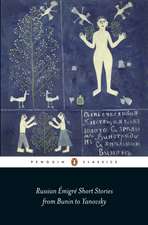Looking Backward: 2000-1887
Autor Edward Bellamyen Limba Engleză Paperback – 20 dec 2012
| Toate formatele și edițiile | Preț | Express |
|---|---|---|
| Paperback (14) | 56.98 lei 22-36 zile | +39.13 lei 5-11 zile |
| West Margin Press – 16 dec 2020 | 56.98 lei 22-36 zile | +39.13 lei 5-11 zile |
| Createspace – 20 dec 2012 | 64.21 lei 22-36 zile | |
| – | 67.52 lei 22-36 zile | |
| CreateSpace Independent Publishing Platform – | 67.95 lei 22-36 zile | |
| Penguin Books – 30 noi 1982 | 93.83 lei 22-36 zile | |
| CreateSpace Independent Publishing Platform – | 104.42 lei 22-36 zile | |
| Broadview Press – 31 dec 2002 | 130.50 lei 22-36 zile | +13.34 lei 5-11 zile |
| Wisehouse Classics – 28 ian 2016 | 58.58 lei 43-57 zile | |
| Digireads.com – 3 iun 2018 | 68.02 lei 43-57 zile | |
| Echo Library – 29 oct 2000 | 90.12 lei 38-44 zile | |
| – | 90.64 lei 43-57 zile | |
| Applewood Books – 31 aug 2000 | 101.82 lei 43-57 zile | |
| COSIMO CLASSICS – 31 dec 2007 | 117.74 lei 43-57 zile | |
| Simon & Brown – 31 dec 2010 | 133.95 lei 38-44 zile | |
| Hardback (3) | 91.12 lei 22-36 zile | |
| Mint Editions – dec 2020 | 91.12 lei 22-36 zile | |
| Wisehouse Classics – 21 oct 2017 | 149.38 lei 38-44 zile | |
| Simon & Brown – 23 oct 2018 | 188.58 lei 38-44 zile |
Preț: 64.21 lei
Nou
12.29€ • 12.86$ • 10.17£
Carte disponibilă
Livrare economică 17-31 martie
Specificații
ISBN-10: 1481275356
Pagini: 176
Dimensiuni: 152 x 229 x 10 mm
Greutate: 0.25 kg
Editura: Createspace
Descriere
Julian West is an aristocrat in 19th century America. He has all that he would ever need, a happy engagement, wealth, and a pleasant place to live. Because of his comfortable place in society, Julian is unsympathetic to the plight of the middle and lower class, and even looks to their protests and strikes with distain and contempt. One day, to calm himself, he decides to be put in a hypnotic sleep by his doctor, in his own underground bunker. This was routine for Julian, but when tragedy in the form of a fire strikes, Julian is presumed dead and left in the bunker. A century later, Julian is found, but wakes to a world he could never predict. With the help of the man that found him, Doctor Leete, and Leete's daughter, Edith, Julian becomes familiar with the 20th century American reality of equality between the sexes, the abolition of poverty, free education, and fair working conditions. Julian must then accept recognize his unempathetic views of the past, now understanding that life is better when people of all genders, classes, and race can be happy. But when Julian finds himself back in the 19th century, he struggles to convince others of his knowledge, and starts to wonder if the ideal 20th century was all a dream. Looking Backward was one of the most commercially successful novels of the 19th century, and upon its publication, inspired mass political movement. With the portrayal of the 20th century, Bellamy advocates for equality, and rejects war and capitalism. By depicting a happy working environment, where citizens had the freedom to choose their occupations, receive fair wages, and are able to retire at a reasonable time, Bellamy raises awareness for the working class. Looking Backward has since inspired the ideology of socialism, and proposes solutions to problems that America still struggles with today. This edition of Looking Backward by Edward Bellamy features a striking new cover design and is reprinted in a readable font. With these changes, the compelling plot and insight of Looking Backward is accessible and worthy of conversation.
Notă biografică
Cuprins
Suggestions for Further Reading
A Note on the Text
LOOKING BACKWARD
Textul de pe ultima copertă
Edward Bellamy's Looking Backward: 2000-1887 (1888) is one of the most influential utopian novels in English. The narrative follows Julian West, who goes to sleep in Boston in 1887 and wakes in the year 2000 to find that the era of competitive capitalism is long over, replaced by an era of co-operation. Wealth is produced by an "industrial army" and every citizen receives the same wage.
This edition contains a rich selection of appendices, including excerpts from Bellamy's Equality and other writings; contemporary responses (by William Morris, Charlotte Perkins Gilman, and others); excerpts from utopian works by Morris and William Dean Howells; and an excerpt from Henry George's Progress and Poverty.























